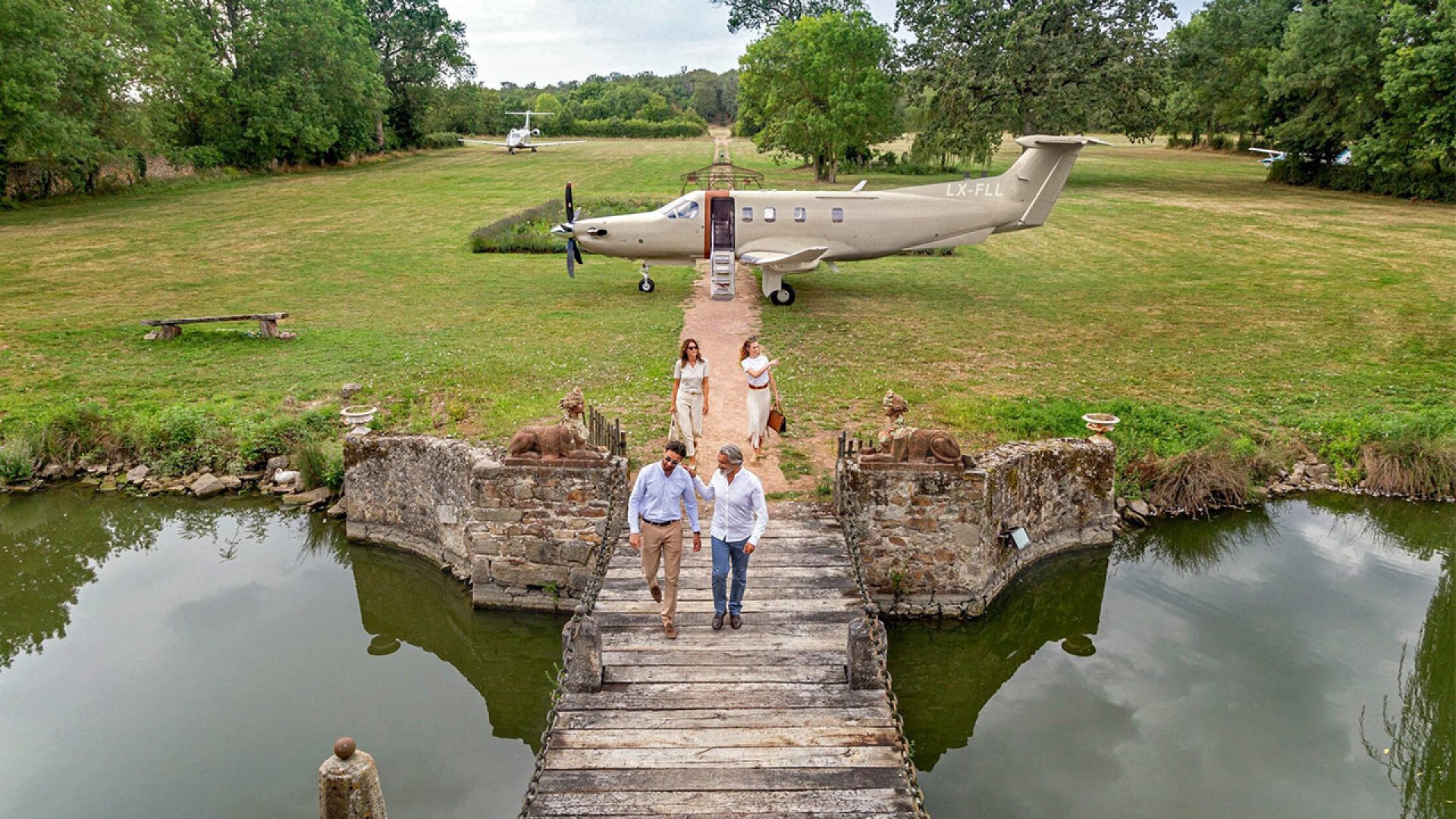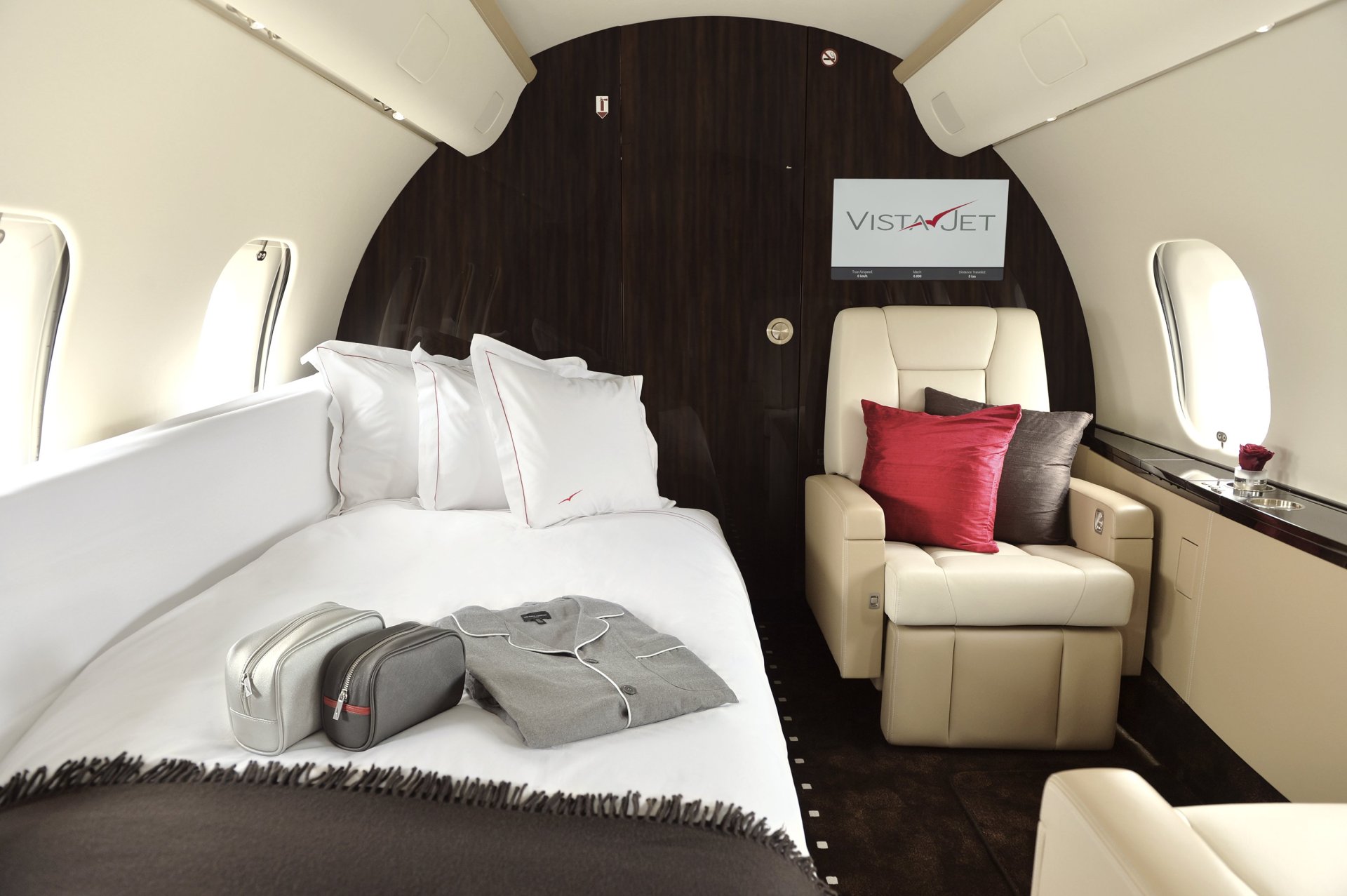A client boards their private jet in Nice. The tarmac is quiet, morning light filters through the tinted windows, and a welcoming hostess greets them by name. Upon settling in, they find their favorite drink on the side table—prepared exactly to their taste: a double sugar ristretto espresso. The cabin is infused with a discreet fragrance they appreciate, and the temperature is set to their usual preference, accurate to the degree. As the aircraft begins to taxi, their favorite playlist automatically starts. Nothing has been left to chance.

Behind this apparent simplicity lies precise coordination. Numerous professionals work in sync to ensure every aspect of the flight is possible. Welcome to the world of business aviation, where each journey is designed as an extension of the client's lifestyle.
While a commercial flight typically begins at the airport and follows standardized services, business aviation opens the door to a wide array of tailored offerings: customized ground transport, gourmet menus, personalized in-flight ambiance, fresh flowers onboard, newspapers in the passenger's language, and even the selection of specific linens. No detail is too small when it comes to crafting a bespoke experience. It mirrors the relationship between a loyal guest and a five-star hotel concierge.
Faced with demanding, time-conscious, and often discreet travelers, operators are rethinking their approach. More than just a flight, they are expected to deliver a fully tailored experience. From catering to in-flight service and onboard technology, every detail matters. A closer look at a trend that has become the new standard.
Today, business aviation stands out through its ability to provide a fully personalized experience based on the profile of each passenger. The flight is no longer just a time between appointments—it becomes a fully optimized moment aligned with the passenger's habits and desires. Companies like VistaJet, NetJets, and Flexjet have heavily invested in high-end concierge services and advanced systems that record client preferences: coffee preparation, seat layout, preferred newspapers, optimal cabin temperature, or even pet accommodations. Some operators go a step further by deploying dedicated station managers in key hubs. Based at locations such as Paris-Le Bourget, Geneva, London-Luton, or Nice, these professionals are more than ground coordinators—they become familiar faces to frequent flyers, providing human continuity to the travel experience. They personally welcome passengers, oversee last-minute adjustments—whether a catering change or a revised departure time—and ensure that every detail meets the traveler's expectations. Their reassuring and consistent presence fosters trust and loyalty, transforming routine trips into bespoke experiences.
In other cases, brokers play a crucial intermediary role between the operator and the passenger. Acting as true conductors, brokers analyze their client's needs and orchestrate each element of the flight with the selected operator to deliver a seamless and personalized journey.
Personalization begins well before takeoff. From the moment of booking, client profiles enable a smooth and consistent handling of requests. Operators of smaller aircraft, such as Jetfly, Fly 7, or Get1Jet, offer the ability to land at more modest aerodromes—avoiding congestion and bringing passengers closer to their destination. For more common airports, travelers benefit from access to private terminals, dedicated lounges, and expedited customs procedures—all contributing to the impression of a seamless journey.

Assistants coordinate ground transfers, manage final catering requests, and ensure that travel documents are ready. Private vehicles can even pull directly up to the aircraft steps, reducing the transition from terminal to tarmac to a matter of seconds.
The flexibility of private aviation is also a key factor. If a meeting runs late or plans change, the operator can adapt to the traveler's schedule whenever possible, providing an unmatched level of service continuity and time savings.

Once in the air, the cabin environment transforms into a space aligned with the passenger's lifestyle. Some jets allow seats to be turned into connected workspaces, entertainment rooms, or full sleeping areas. Lighting, sound, and temperature can often be adjusted mid-flight via a mobile app.

Catering is curated as a gastronomic experience: preferred dishes, vegan or allergen-free menus, caviar, fine wines, or meals tailored to religious or cultural requirements. Cabin crew—trained in luxury hospitality—anticipate needs with discreet precision, even adjusting their communication style based on the client's preferences (formal, relaxed, or virtually invisible).
Personalization in business aviation is more than just a trend—it is a redefinition of what it means to travel. By turning each flight into a singular experience, business aviation offers a new form of luxury: the feeling of being fully understood, anywhere in the world. It is a service where technology, logistics, and human attention converge to deliver, at every takeoff, a bespoke way of life.
Featured image by VistaJet